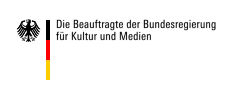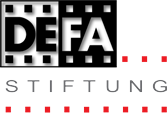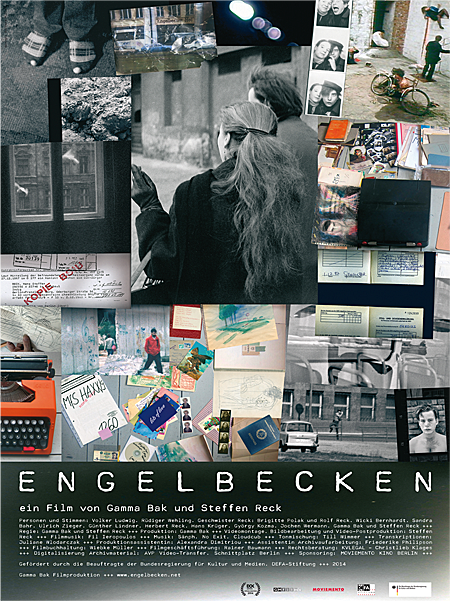ENGELBECKEN
A film by Gamma Bak and Steffen Reck
Engelbecken is an actual place located between the districts of Berlin-Mitte and Berlin-Kreuzberg — and a metaphor for the deadly landscape of the Wall: it was, in fact, no man's land. In the West, pedestrians were crammed onto a narrow, barely two-meter-wide sidewalk, while in the East, ruins loomed above the "death strip" that slashed through the city. And the word Engelbecken can also be divided into parts, can be arranged into sub-titles: for example, into "Ecken" [corners], which poke and jab; or "Enge" [narrows], which are oppressive; or even "Engel" [angel], which everyone loves.
This feature-length documentary takes us to the 1980s, to the eve of the fall of the Wall and to the oppositional subculture of East Berlin in the neighborhood of Prenzlauer Berg. An essay film, it dispenses with many of the elements of the traditional documentary and, instead, conveys the perplexity, powerlessness, constraint, menace, and paranoia of those years. A period in time in which the directors Gamma Bak (Berlin-West) and Steffen Reck (Berlin-Ost) had a relationship — despite the Wall between them. The question that loomed: to stay or leave?
The story behind the difficult choice to leave the GDR in 1988: Steffen Reck, founding member of Zinnober, the first and probably only independent theater group of "the Republic", reminisces on his guest performance of no return. The film reflects the continually increasing external as well as personal pressures that led to the decision of choosing exile and leaving.
Gamma Bak remembers her life at the time and its 26-hour tact: from midnight of the first day to 2 AM of the second, she was allowed to stay with the man she loved — and try to help him endure the oppressive difficulties. Absurd witnesses to her numerous crossings are the customs declaration documents — "1 pair of tights, 1 bottle of sparkling wine" — and the reports of the border police and informant files of the East German Secret Police ("Stasi").
Engelbecken stimulates reflection upon guilt and betrayal, and uses personal documents of that time such as Super-8 film, photographs, excerpts from films and theater performances (including from the legendary stage production of "traum haft" [dreamy / dreamily / dream prison]) and audio interviews. It also uses materials from the Stasi archives on Steffen Reck and the "Citizen of the West" Gamma Bak, as well as and particularly on the activities of the half-illegal theater collective, "Zinnober".
In the same manner that Zinnober's piece "traum haft" managed, collectively, to poetically pinpoint the situation of the individual and to dramatically articulate the abyss between the individual and society in the GDR, in Engelbecken the two directors succeed in piecing together the atmosphere of East Berlin before the fall of the Wall from the fragments of a past reality.
A radically subjective and therefore convincing contribution to the 25th anniversary of the fall of the Wall.
Axel Besteher (translation: Gamma Bak Filmproduktion)
_ _ _ _ _ _ _ _ _ _ _ _ _ _ _ _ _ _ _ _ _ _ _ _ _ _ _ _ _ _ _ _ _ _ _
![]()


